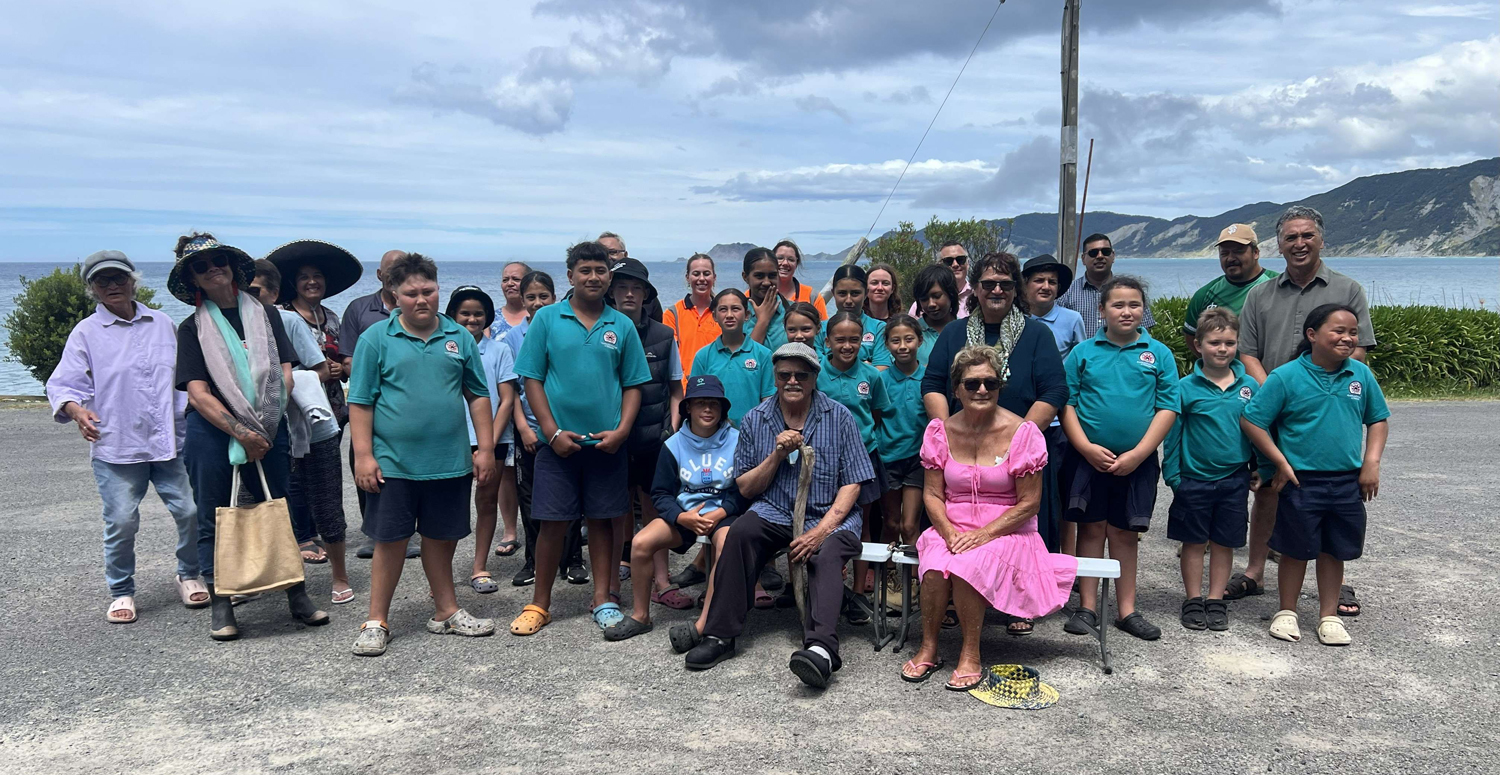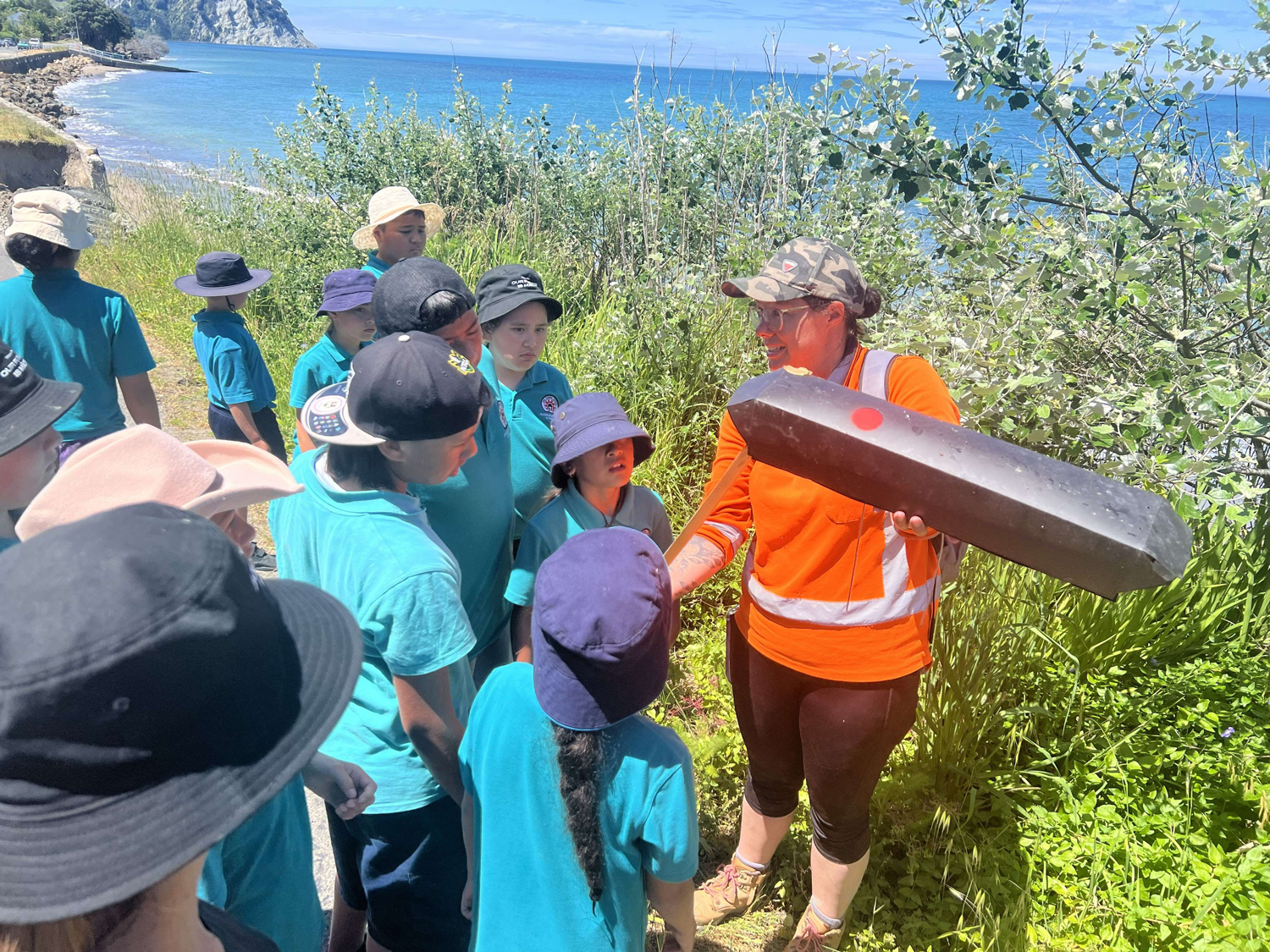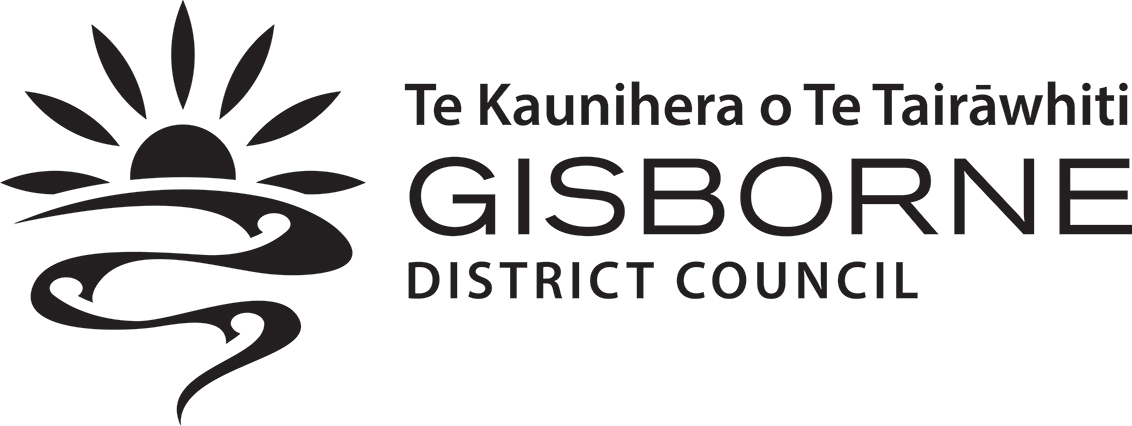14 November 2025
Tamariki in Tokomaru Bay were special guests for an opening karakia and ecological assessments on the Beach Road sea wall this week.
Hatea-a-rangi and Te Kura Kaupapa Māori o Ngā Taonga Tūturu ki Tokomaru schools were invited to participate in the studies ahead of the rebuild of the sea wall next year.
Studies included lizard tracking, communicating with kororā (penguins) and sampling of life in the sand and under rocks.
Herena Paranihi, principal of Te Kura Kaupapa Māori o Ngā Taonga Tūturu ki Tokomaru said the mokopuna were privileged to work alongside ecologists to gather information about the marine organisms and their environment as part of the sea wall rebuild project.
“All of our mokopuna whakapapa to our hapū Te Whānau a Ruataupare me Te Ao Tawarirangi and so understanding the impact on their taiao is important to them as our leaders of tomorrow,” she said.
“Mokopuna were particularly interested in the kororā and whether their natural habitat could be protected as they know that the decisions made today, affect them tomorrow.
“Our mokopuna were reassured by the ecologists.”
The sea wall rebuild is part of Council’s $241m Government funded recovery programme and has been prioritised in partnership with Te Rūnanganui o Ngāti Porou.
Five dropouts on Beach Road will be repaired early next year and the sea wall rebuild will begin in October after the winter weather.
Na Raihania, Deputy Chair of Te Rūnanganui o Ngāti Porou says the whanau of Te Akau o Tokomaru are pleased and thankful for the decision to fix the sea wall and road.
“This project will enable us as a close community to maintain our whakapapa connections and ensure access to services particularly in times of adverse conditions such as Gabrielle – our road is our lifeline - me mihi ka tika!”
Rohenga Tipuna 6 rūnanga representative Whiti Timutimu added climate change is on our doorstep, or in this case, has impacted infrastructure on many East Coast roads.
“What I’ve loved about the engagement and partnership with Gisborne District Council with the Iwi Led Projects, is that our tamariki mokopuna have been a big part of it, from the karakia to start the ecological assessments to exploring their taiao with the ecologists,” she said.
“Climate change is not going away and we need them to be our Ngāti Porou ecologists and our roading engineers in the future.”

Lizard studies

